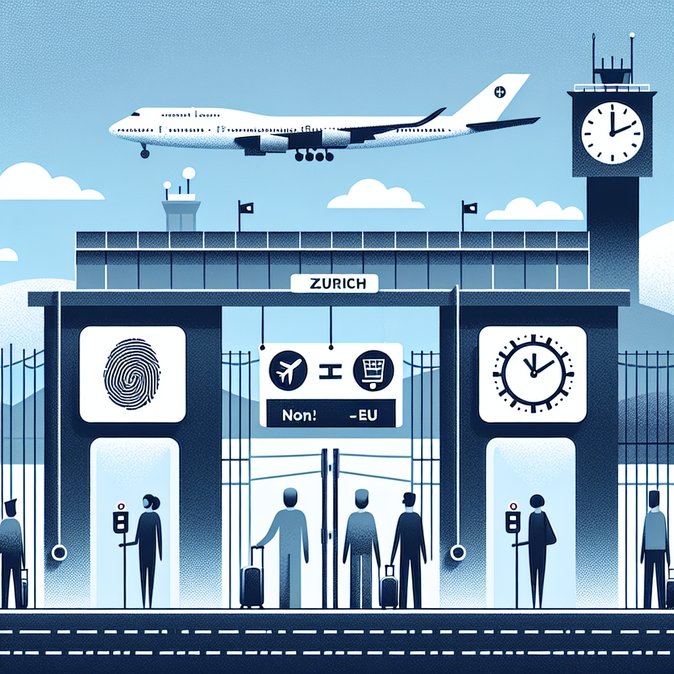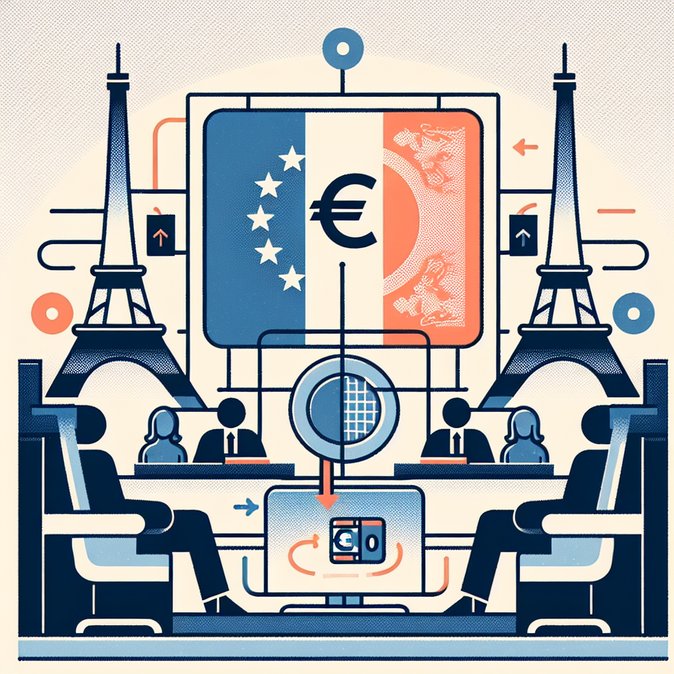
Switzerland’s Zurich Kloten Airport became the latest Schengen border to activate the European Union’s Entry/Exit System (EES) on 19 November 2025. The airport has installed 52 self-service kiosks and Secunet ‘easygate’ e-gates that capture fingerprint and high-resolution facial images from third-country nationals the first time they cross the Schengen frontier. Although Switzerland is outside the EU, it applies Schengen rules, making the change immediately relevant to thousands of French residents who fly long-haul via Zurich each week.
Under the scheme, any traveller who does not hold an EU, EEA or Swiss passport—this includes French-based assignees with US, UK, Indian or other citizenship—must complete a one-time biometric enrolment. The data are stored for three years and will be re-used for subsequent entries, replacing the manual passport stamp. Zurich Airport says the process should take “well under a minute” once a record exists, but initial enrolment during peak arrival banks could add 30–60 minutes to queue times.
![Zurich Airport switches on EU Entry/Exit System, adding biometrics for French transit passengers]()
Human-resource and travel managers in France are being urged to build longer connection buffers when routing employees through Zurich. Airlines such as SWISS and Air France-KLM’s codeshare partner Air Baltic have begun briefing passengers onboard and via SMS. Mobility consultancies are advising assignees to keep a printed copy of employment contracts or residence permits handy; border guards can ask for supporting documents if a non-EU passport shows repeated short stays.
The roll-out is part of the phased Schengen smart-borders package that started on 12 October 2025 and will reach all 29 participating countries by April 2026. France continues its own deployment at Calais, Dunkerque and Gare du Nord, but industry observers note the Swiss implementation is an important stress-test for hub-and-spoke connections popular with French corporates.
In the medium term, the border-force automation is expected to reduce over-stay abuse and give employers clearer visibility of the “90/180-day” rule, because the central database automatically counts permitted days. For now, companies should update travel policies, warn staff of possible delays and ensure passport scanners in duty-of-care apps are EES-compliant.
Under the scheme, any traveller who does not hold an EU, EEA or Swiss passport—this includes French-based assignees with US, UK, Indian or other citizenship—must complete a one-time biometric enrolment. The data are stored for three years and will be re-used for subsequent entries, replacing the manual passport stamp. Zurich Airport says the process should take “well under a minute” once a record exists, but initial enrolment during peak arrival banks could add 30–60 minutes to queue times.

Human-resource and travel managers in France are being urged to build longer connection buffers when routing employees through Zurich. Airlines such as SWISS and Air France-KLM’s codeshare partner Air Baltic have begun briefing passengers onboard and via SMS. Mobility consultancies are advising assignees to keep a printed copy of employment contracts or residence permits handy; border guards can ask for supporting documents if a non-EU passport shows repeated short stays.
The roll-out is part of the phased Schengen smart-borders package that started on 12 October 2025 and will reach all 29 participating countries by April 2026. France continues its own deployment at Calais, Dunkerque and Gare du Nord, but industry observers note the Swiss implementation is an important stress-test for hub-and-spoke connections popular with French corporates.
In the medium term, the border-force automation is expected to reduce over-stay abuse and give employers clearer visibility of the “90/180-day” rule, because the central database automatically counts permitted days. For now, companies should update travel policies, warn staff of possible delays and ensure passport scanners in duty-of-care apps are EES-compliant.


